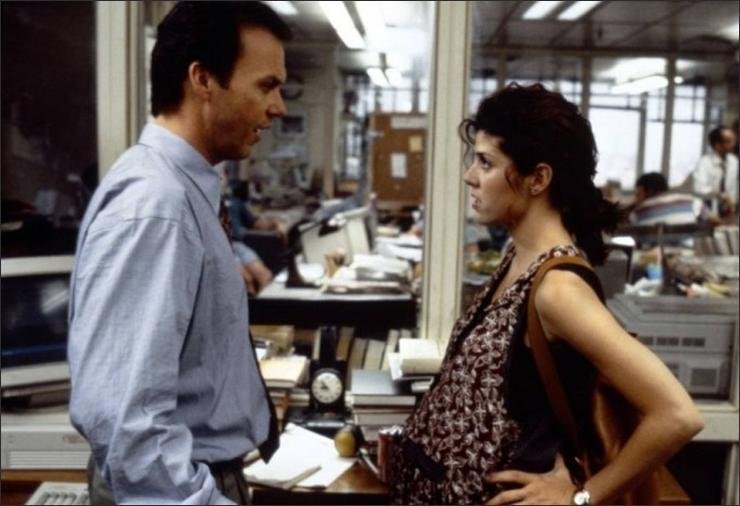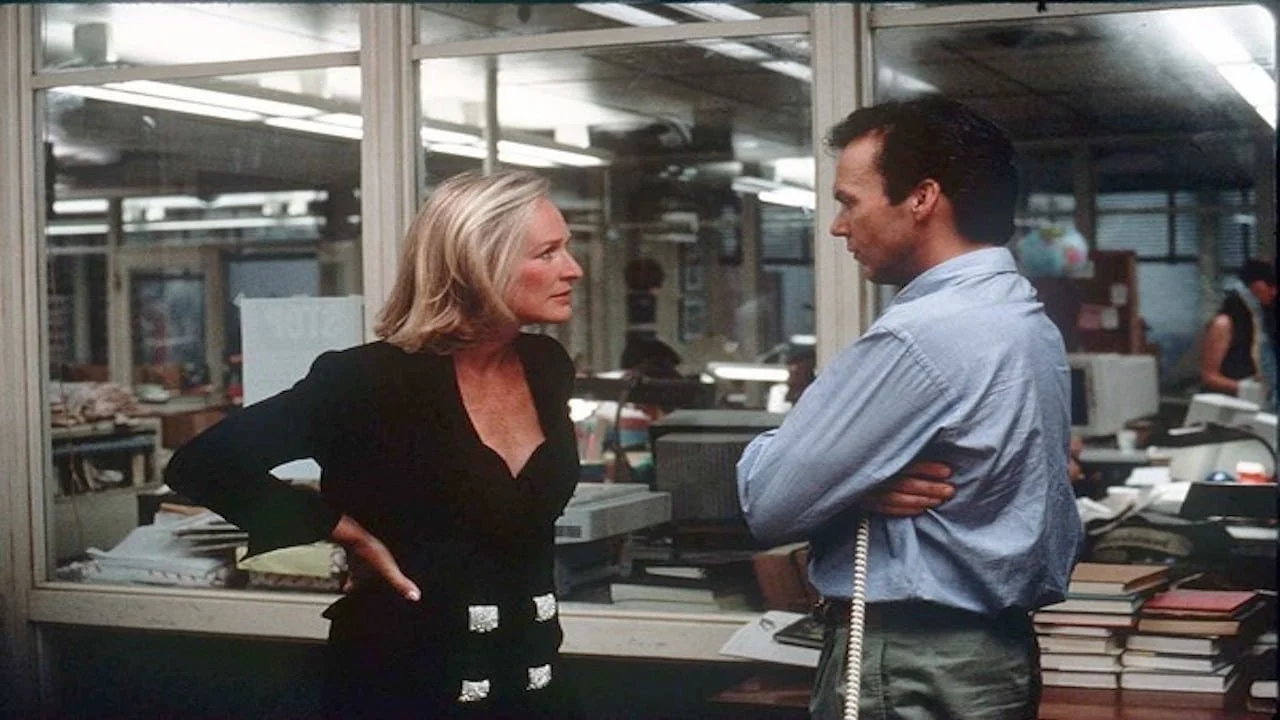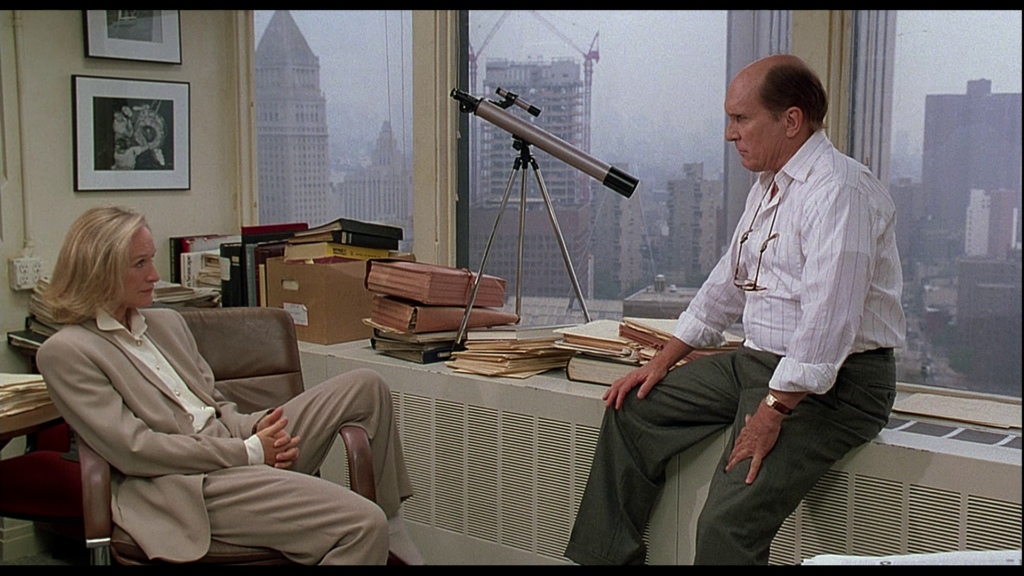Continuing on with my spooky season coverage, I watched Late Night with the Devil for you, and now we’re going to talk about it. By now you know that horror is far from my favorite genre, but it definitely has its draw when it’s done really well and Late Night is done very well.
First, the vitals. Coming in at a scant 93 minutes, Late Night is a refreshingly compact movie that doesn’t waste much time, nor much of anything else. In an era of bloated 2+ hour everything, plus the inevitable 4 hour Snyder Cuts, seeing a movie that’s just over an hour and a half was such a welcome change. I really appreciate the economizing of storytelling—not that I don’t love to have a show with 8 or 10 episode and getting really stuck into it, but having a story told well in the time it takes to watch two episodes of The X-Files is just so nice. It’s not a movie that feels short though, if that makes sense. It’s lean, not thin. All the fat has been trimmed and it doesn’t feel like there’s a wasted word or wasted shot in it. Everything there has a purpose and it draws you in and keeps you there. It’s a variation on the found footage theme; what you’re witnessing is a moment lost to time, immortalized in film, but somehow forgotten, unearthed for your eyes. The movie starts with a quick overview, an introduction to the film you’re about to watch. David Dastmalchian (whom you may know as Kurt from Ant-Man or Polka-Dot Man from The Suicide Squad) plays Jack Delroy, host of the show Night Owls, a perennial also-ran against Johnny Carson’s Tonight Show in the 1970s landscape of late night television.
The footage you’re about to see is disturbing, they warn you. Well, I don’t know about that, but it’s definitely some pretty creepy stuff. As the introductory exposition explains, Jack is coming back from a personal tragedy and wants desperately to shake off the stigma of always being the runner up to Carson. This pushes Jack to make more and more controversial decisions for his show, culminating in this Halloween special episode—an episode in which he brings on a medium to cold read the audience and a young girl called Lilly, the sole survivor of a Heaven’s Gate-like, demon worshipping cult that, under the care of parapsychologist June Ross-Mitchell. The idea here is to have Lilly tell her story and, eventually, see if she can channel the demon Abraxas, which the cult worshipped.
As you can imagine, what happens next is a source of great distress to everyone involved. As it builds to a crescendo, the night goes terribly awry, and things get severely out of hand. But more than anything, this movie is not about demonic possession. This is not The Exorcist with a twist. It’s not even about charlatans and fakers, nor is it about skeptics or close-mindedness to the unexplained or unexplainable.
It’s about success. It’s about fame. It’s about the sacrifices that people will make, both real and imagined, physical and emotional, that take a toll on them as they push their way to the top, or at least, in the case of Jack Delroy, very close to it. Despite the trappings of a 1977 live broadcast, the things the movie has to say about modern content creation are both cutting and palpable, especially in a world where paths to fame and success in the media space are more varied than ever. I’m not sure that anyone in the 1970s or 1980s or even the 1990s could have imagined a society in which you could make millions of dollars by having people watch you play video games or do makeup tutorials or do whatever it is that people do on TikTok. This isn’t a criticism of any of those things; I’m genuinely amazed and often in awe of content creators who not only push to the top of their field in an increasingly competitive and saturated, noisy marketplace of content, but also cross over into traditional media as well. I often wonder, when I hear someone sing with a voice so beautiful it moves me or I see someone act so well they completely disappear into their characters and all but literally become another person and they don’t get fame and recognition for those talents what sets the people who do apart. Hard work and talent of course play a part, but I think it’s fair to say that there’s a lot of luck involved as well. But Late Night asks some very poignant questions about what you’re willing to give up and the lengths to which you’ll go in order to bask in the warm glow of audience adulation and makes some clever observations about the toll it takes on not only those seeking fame, but on those around them as well.
All this comes through the lens of a film so convincingly authentic looking and feeling that it’s easy to get lost in the movie. The use of highly talented actors and actresses who are not household names definitely adds to this feeling of authenticity. David Dastmalchian is not generally seen as a headlining name, despite the fact that you’ll probably recognize him if you’ve seen even half as many movies as I have and despite the fact he showcases some incredibly acting talent in this film. Which, honestly, shouldn’t surprise me, because I’ve seen him play so many different roles well, but always in the background. Australian actress Ingrid Torelli absolutely nails the role of Lilly in a way that leaves you unsettled from the moment she comes on screen until the end credits roll. She has an extremely peculiar way about her, staring into the camera and seemingly always knowing immediately which camera is on her, only breaking to speak to Jack or glower at the skeptic brought on to debunk the acts on the show. That is, until she’s strapped to a chair and the events of the film are truly set into motion. It’s easy to focus on the two of them as standout performances, but really no one isn’t carrying their weight in the film and they all do such a great job, I could spend the rest of my column inches just singing all their praises.
Doing a full analysis of this film seems warranted, but I don’t want to go any deeper into it because I can’t do that without spoiling the movie for you and this is something I want you to experience for yourself. The attention to detail in every level of this movie is immensely impressive—it’s not just the acting that’s praiseworthy, every little thread in the movie can be followed to a satisfying end and the way every minor aspect of the film looks and feels like a great deal of thought and care went into it, from the moments in which tape betrays its age through dubious warps and glitches, to the placement and positioning of every single prop—Late Night with the Devil is a masterclass in minutiae, a practice in particulars, and a study in specifics. Even the name of Jack’s late night talk show Night Owls feels like a carefully crafted reference not only to the idiomatic use of the term, but also to the owl iconography in alien and paranormal circles. It’s not just an entertaining and insightful film, it’s relevant in today’s media landscape. When we look at the sounds that echo across cyberspace, they are often the outlandish, the ridiculous, the vitriolic, the venomous, and the insidious. The ones banging the drums the loudest to get over the din of the billions of voices are sometimes the ones that will do and say anything to get their version of success, no matter the damage they do. And we’re all part of the outrage cycle; this bitter, spiteful ouroboros that we participate in with our television ratings and social media accounts. Late Night with the Devil asks hard questions about the cost of success when you’re willing to attain it with reckless abandon and the complicity of those who allow it to happen. And they’re questions we really should think about before answering. Late Night might not scare you in the way you think it will, but it should scare you.








